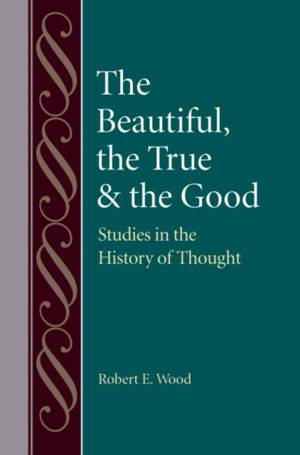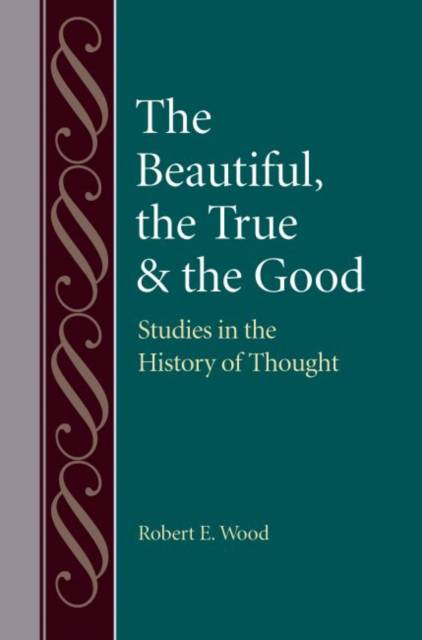
Je cadeautjes zeker op tijd in huis hebben voor de feestdagen? Kom langs in onze winkels en vind het perfecte geschenk!
- Afhalen na 1 uur in een winkel met voorraad
- Gratis thuislevering in België vanaf € 30
- Ruim aanbod met 7 miljoen producten
Je cadeautjes zeker op tijd in huis hebben voor de feestdagen? Kom langs in onze winkels en vind het perfecte geschenk!
- Afhalen na 1 uur in een winkel met voorraad
- Gratis thuislevering in België vanaf € 30
- Ruim aanbod met 7 miljoen producten
Zoeken
€ 90,95
+ 181 punten
Omschrijving
How do we understand the notions of the beautiful, the true, and the good, and how do they help us to know, to understand? Philosopher Robert E. Wood considers appeal respectively to the heart, to the intellect, and to the will. In our minds, their interplay beckons each of us to assimilate one's past, and look forward towards further endeavors. They also set up what Wood calls a "dialogical imperative" to speak from where we stand and to stand in place of the Other, the person facing us, as well. The order follows Plato's claim that the love of Beauty is the light of the Good that grounds our pursuit of the True. Human experience, according to Wood, has a "magnetically bipolar" character, rooted in organically based desires. Yet that experience is aimed, through the all-encompassing notion of Being, at the absolute totality of what is. The notion of Being affords a distance that grounds both understanding and choice. Culture enters in as well. Its developments, initially empty in relation to the totality, come to occupy the space of meaning between the here-and-now and the totality. Each human being's genetic endowments interplay with one's cultural shaping. Taking them up, each individual sets up a unique field of attractions and repulsions belonging to the heart as one's radically individual center. Wood proceeds from this phenomenological basis to consider key thinkers from Heraclitus and Parmenides, to Heidegger, Buber, and Marcel. He seeks, in this collection of essays from the past forty years, to develop a "fusion of horizons" with them, as part of an on-going broader philosophical dialogue that constitutes the history of thought, now and to come.
Specificaties
Betrokkenen
- Auteur(s):
- Uitgeverij:
Inhoud
- Aantal bladzijden:
- 504
- Taal:
- Engels
- Reeks:
- Reeksnummer:
- nr. 58
Eigenschappen
- Productcode (EAN):
- 9780813227474
- Verschijningsdatum:
- 26/05/2015
- Uitvoering:
- Hardcover
- Formaat:
- Genaaid
- Afmetingen:
- 160 mm x 234 mm
- Gewicht:
- 952 g

Alleen bij Standaard Boekhandel
+ 181 punten op je klantenkaart van Standaard Boekhandel
Beoordelingen
We publiceren alleen reviews die voldoen aan de voorwaarden voor reviews. Bekijk onze voorwaarden voor reviews.









